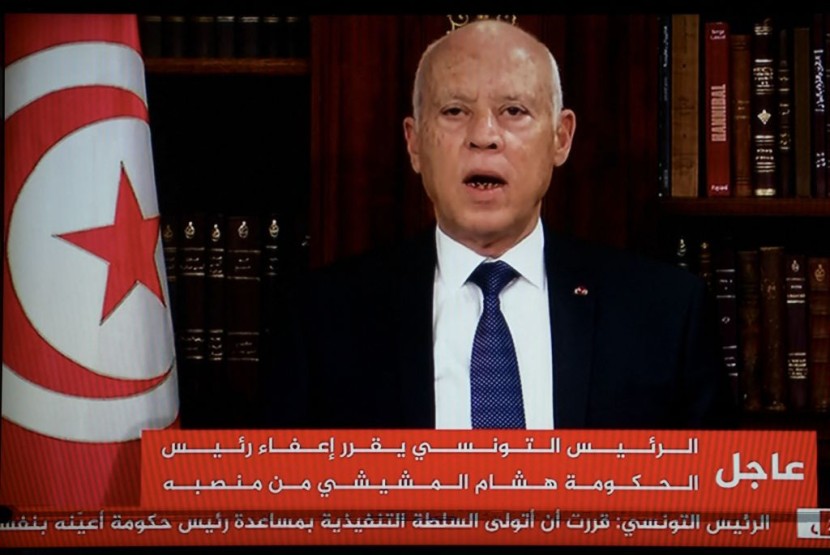
The Tunisian President Kais Saied on Sunday likened his presidential election victory in 2019 as a new revolution. He then brought numerous supporters onto the streets due to his freezing of the parliament and dismissal of the government in a move that his detractors touted as a "coup."
Tunisia's president stated he would fill in the executive role with the aid of a new PM. This is the largest obstacle yet to the democratic system that the country introduced in an uprising in 2011.
People Flooding to Protest
Numerous people rapidly flooded the capital and other cities. They honked car horns and hollered in scenes that recounted the revolution. This uprising incited the Arab Spring demonstrations that shook off the Middle East.
The new guidelines arrive hours following protesters marching in the streets in many regions of the nation. They were calling out the parliament to be dissolved and the government to tender resignation.
The nation went through an economic slowdown due to public tumult and attacks by militant rebels since a revolution that ignited the Arab Spring rebellion of 2010-2011.
Tunisian President's Facebook Announcement
The declaration of the Tunisian president was expressed in a video broadcast on the Tunisian Presidency on the Facebook's page. This happened following an urgent meeting that the president had with senior security authorities.
Saied also declared that he annulled the immunity of all parliament members, reported Xinhuanet.
This is the largest obstacle yet to a 2014 democratic constitution that divided the powers between prime minister, president, and parliament. Against a fragile government and divided parliament, the scope of backing for Saied's actions was not made clear. Saied also cautioned against any brutal retaliation, reported Reuters.
According to Saied in a statement, "Many people were deceived by hypocrisy, treachery and robbery of the rights of the people. I warn any who think of resorting to weapons... and whoever shoots a bullet, the armed forces will respond with bullets," reported The Hindu.
Under article 80 of the constitution, the president declared such guidelines following an emergency Carthage Palace meeting. Saied continued, after the announcement of his decisions that the Tunisian people as of now go on with their uprising under the shadow of validity. He added they will make efforts towards the application of the law to all people equally.
Tunisian Parliament Speaker Rached Ghannouchi blamed the president of initiating an overthrowing against the constitution.
According to Ghannouchi, they regard the organizations to remain in place. He added the supporters of the Tunisian public and Ennahdha will defend the uprising.
Saied joined his supporters in the street littered with the central Habib Bourguiba Avenue. This place is the central point of the revolution in 2011.
Military vehicles, hours following the statement, flanked the parliament establishment as crowds in proximity sang the national anthem and cheered.
Years of corruption, paralysis, rising unemployment, and declining state services had already jaded numerous Tunisians regarding their political system.
Related Article : Iraq Bomb Explosion Records 35 Fatalities, 60 Wounded in Baghdad








